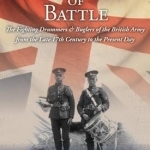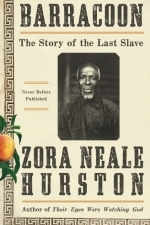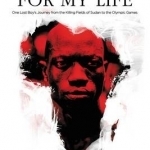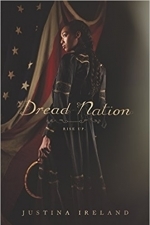The New Boys of Summer: Baseball's Radical Transformation in the Late Sixties
Book
The 1960s were among the most compelling years in the history of the United States, from the...

Instruments of Battle: The Fighting Drummers and Buglers of the British Army from the Late 17th Century to the Present Day
Book
Instruments of Battle examines in detail the development and role of the British Army's fighting...

Barracoon: The Story of the Last Slave
Book
A major literary event: a never-before-published work from the author of the American classic, Their...
Henry M. Jackson: A Life in Politics
Book
Henry M. Jackson ranks as one of the great legislators in American history. With a Congressional...

Alvar Aalto: Architect
Richard Rogers and John Stewart
Book
Alvar Aalto remains Finland's greatest architect, retains his place among the Modern Masters of...

Running for My Life: One Lost Boy's Journey from the Killing Fields of Sudan to the Olympic Games
Book
Running for My Life is not a story about Africa or track and field athletics. It is about outrunning...

The Cooking Gene
Book
A renowned culinary historian offers a fresh perspective on our most divisive cultural issue, race,...
Goddess in the Stacks (553 KP) rated Dread Nation in Books
Jul 24, 2018
I should not have.
Before I start in on this, let me say it's a good story. It's well-written, the plot is paced nicely, and it's entertaining. All that said, it's quite problematic in many ways. I knew some of this before I read it; there was a Twitter thread about some of the issues, namely that in the Author's Note she describes the Native American boarding schools (where the government forced Native American children to go, and tried to destroy their heritage and culture in the name of "civilizing" them) as "well-meaning." The Twitter thread does an excellent job of dissecting that passage, and it's worth reading.
There's also the incredibly unrealistic scene where Jane gets flogged eleven times, walks back to where she's staying, has a coherent conversation where she lays out a plan she has formed, and then puts a shirt on. That last part especially got me. Like, what? You're going to be in more pain than that! Being flogged barely seems to slow Jane down. She asks for laudanum - for her plan. Not to take for the pain.
I don't know. There's a lot about the book that set my teeth on edge. There's the absurd amount of racism, but the protagonist is a black woman and it's civil war era, so that's to be expected. And it's coming from characters, not from narration. Jane lies. A lot. So it's hard to trust that she's even a reliable narrator.
I guess it's okay. I didn't care for it. I found it really hard to get past the author's "well-meaning" comment about the Native American boarding schools. And the plot of "as soon as they're old enough, black children get sent to combat schools." Especially with what's going on lately with the jailing of migrant children, it feels tone-deaf, ignorant, and genocidal.
One good point was the oh-so-casual mention of bisexuality (a female friend taught her "everything she knows about kissing") but it was only two sentences and never mentioned again. Not nearly enough to make up for the rest of the book.
You can find all my review at http://goddessinthestacks.wordpress.com
Jessi Bone (48 KP) rated From Auction Block to Glory: The African American Experience in Books
Mar 18, 2019
From the Auction Block to Glory by Phillip Thomas Tucker Ph.D. is 128 pages long and looks at the African American experience from slavery to emancipation. I found the book very insightful as it looked at the side of slavery not just from the slave's point of view but from the perspective of the Southern owners and the North's needs end the slavery. The painting, photographs, and stretches bring the past to life and allow additional visual confirmation of what the words were saying and gives you a rare and unique view of the world that they lived in. I found the book very informative and an enjoyable read. Dr. Tucker writing style is in a communicative style similar to a conversation from him to you which makes you want to finish the book in one sitting.

The Evangelicals: The Struggle to Shape America
Book
This groundbreaking book from Pulitzer Prize–winning historian Frances FitzGerald is the first...
History Religion

